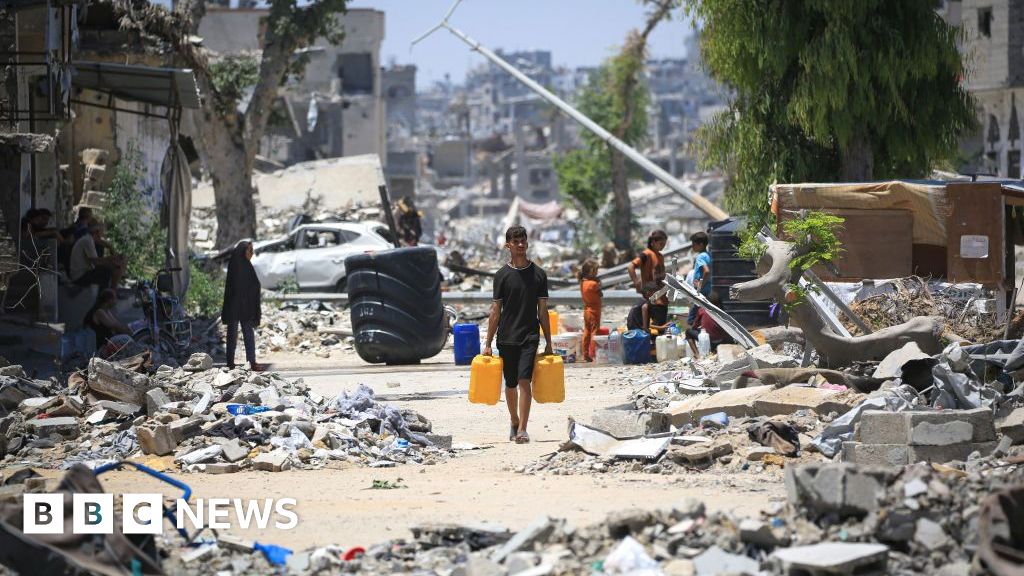
Image source, Getty Images
- author, Matt Murphy
- Role, BBC News
-
Hamas said it had submitted its response to a US-backed plan for a ceasefire in Gaza, and a senior Hamas official told the BBC that it still required an Israeli commitment to a permanent ceasefire.
The movement and its allies from the Palestinian Islamic Jihad movement expressed, in a statement, their “readiness to reach a positive agreement” with an agreement.
The proposed ceasefire plan – which was approved by the UN Security Council on Monday night – calls for a six-week ceasefire that will eventually become permanent.
Qatar and Egypt – which mediated alongside the United States in negotiations between Israel and Hamas – confirmed that the Palestinian group had submitted its response.
In its statement on Tuesday evening, Hamas called for a “complete cessation” of fighting in Gaza.
Hamas and the Islamic Jihad in Palestine said, “The response gives priority to the interests of our Palestinian people and confirms the necessity of a complete cessation of the ongoing aggression against Gaza.”
The factions added that they were ready “to deal positively in order to reach an agreement to end this war.”
John Kirby, White House national security spokesman, said it was “helpful” for Hamas to provide a response and that US officials were “evaluating” the movement’s requests.
The proposal put forward by President Biden last month includes an initial six-week ceasefire, with Hamas releasing some hostages in exchange for Israel releasing an unspecified number of Palestinian prisoners.
The second phase will see the release of the remaining hostages by Hamas and the complete withdrawal of Israeli forces from Gaza as part of a “permanent” ceasefire, but the latter will remain subject to negotiations.
The actual Israeli proposal — which is said to be longer than Biden’s summary — has not been made public and it is unclear whether it differs from what the president conveyed in his May 31 statement. It was presented to Hamas days before Biden’s speech.
Netanyahu admitted that the war cabinet approved the plan but did not express his support for it unequivocally. Members of the extreme right in his government threatened to withdraw from his coalition and cause its collapse if the agreement went ahead, considering it a surrender to Hamas.
While Blinken met with Israeli officials in Tel Aviv on Tuesday, demonstrators outside his hotel raised American flags demanding an agreement. Many carried pictures of hostages and chanted: “SOS, USA,” and “We trust you, Blinken, make a deal.”
Vicki Cohen, the mother of Israeli soldier Nimrod Cohen, 19, who was kidnapped by Hamas on October 7, held up a sign showing his picture.
She told the BBC: “We came here to ask Blinken and the US government to help us and save us from our government. Our prime minister does not want to bring our loved ones back, we need their help to put pressure on our government.” “
He then traveled to the Dead Sea to attend a conference of Arab leaders calling for increased aid access to Gaza, where he said Israel “could do more.” He also announced $404 million in new aid to the Palestinians, and urged other countries to “step up” aid as well.
The war began after Hamas attacked Israel on October 7, killing about 1,200 people and taking 251 others to Gaza hostage. The Hamas-run Health Ministry in Gaza says more than 37,000 people have been killed in the Israeli offensive since then.




More Stories
Journalists convicted in Hong Kong sedition case
Stand News: Hong Kong journalists convicted of sedition in case critics say highlights erosion of press freedom
Shark decapitates teen off Jamaica coast